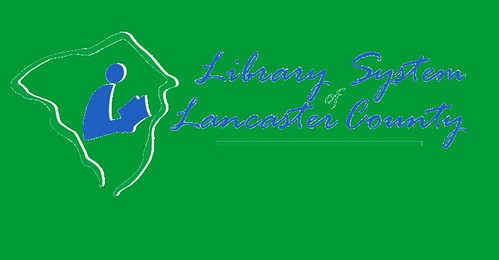How long has it been since you've been to your local public library? Days? Weeks? Months? Years? Never? In the midst of all the talk about funding cuts to libraries in the past year and the turmoil in the library community and among library advocates as a result, have you ever found yourself wondering, "Why do libraries need so much money? The books they lend out are free!"
Of course everyone is aware (or should be aware) that while the books are free to patrons, they're not free to libraries. And neither are the DVDs, CDs, audiobooks, downloadables, databases, facilities, professional staff, internet access, wireless connections, programs, computers—you get the picture. To provide free public services costs a lot of money.
If you don't use your library, you're probably asking yourself, "Why should I care?" Well, maybe you owe it to yourself to find out, and you don't have to leave home to do that. Check out your local library's Web site--most (if not all) have them. Find out what they offer. Ask yourself if the information you find there is useful to you. If not, ask yourself if it could be useful to someone else for different reasons.
Check out your local library's Facebook page--many have them. Follow your local library on Twitter or YouTube—yep, they’re there, too. Test your library's services from home. Using your library card, you have access to downloadable ebooks and audiobooks. You can try most of the library's databases from home, too—the ones that still exist after funding cuts took away most of Power Library last year. You can place books on hold and renew books from home as well. You can search the library’s catalog.
Instead, maybe you decide to pay a visit in person to your local library. In light of funding cuts, which have facilitated cuts in paid staff at many libraries, you might encounter a volunteer at the desk. A volunteer is a wonderful asset to any library. But a volunteer is not a replacement for a professional librarian or paraprofessional staff (yes, those cost money, too). Generally, a librarian has to have a Master’s in Library Science (MLS) degree to secure a professional librarian position, which usually requires 36 credit hours of coursework in a graduate program accredited by The American Library Association—that’s not free, either. I know because I have 9 credit hours left to complete in my two-year program.
Librarians today are required to know much more than the Dewey Decimal System. They are required to be technologically savvy and to instruct users on how to use the (free) internet access on the library’s computers. They have to know how to troubleshoot technical problems. They have to know and, more importantly, understand how to use the internet. Despite a perception to the contrary, the internet is not the librarian’s enemy. Librarians love Google as much as you do. However, they are trained to use it as a tool, along with other tools, including the online research databases libraries provide for free, so that the information found there can be verified and validated and therefore become more useful to the user. And of course, as always, librarians have to plan and develop new programs and services (children's programming and job search/resume assistance are two good examples) and market them; they have to institute and follow budgets; they have to build quality collections; and, in some cases, they have to facilitate the construction of new buildings. They also have to advocate for their libraries to local municipalities in order to secure funds.
Like volunteers, your monetary donations to the library are appreciated. However, a library cannot survive on donations alone. And they cannot go forward from year to year having to generate support for every dollar in funding secured. Libraries need to have a solid foundation for funding and know, with some degree of certainty, how much money they will have to depend on in order to plan for those services, collections, and programs. They have to know how many hours per week they can afford to operate. They have to know who they can and cannot hire. The yearly scramble to advocate for state and local funding takes away from the time needed to do all of those things.
I came to libraries late in life, as a second career. Before I began working in the library world about 7 years ago, I was like many of you—uninformed. I wanted to work in a library because I like books and I like to read. Still a good reason, but not good enough, not nearly good enough. Like the internet, the library is a source of unlimited information. But unlike the internet, the information found there can be contained and turned into true knowledge with the help of trained professionals and validated resources. And you can borrow the latest feature films—for free, get books to listen to on your portable device of choice—for free, browse the stacks—for free, use the computers—for free, or just sit, have a cup of coffee and read. But please, don’t confuse free services with services that are free to offer. And please, if you haven’t explored what your local public library has to offer, get on your computer or get in your car and find out. You owe it to yourself to find out what you’re missing.
Friday, July 23, 2010
An Op-Ed from Bonnie Powers
My coworker, Bonnie Powers, works in our Collection Development / Technical Services Department. She only has 9 more credits to go until she will have her Masters in Library Science! Bonnie recently wrote an op-ed that I'd like to share with all of you. Yes, again, I'm preaching to the choir most likely, but you never know who's going to see what you throw out to the Internet! Thanks Bonnie for this wonderful article in support of libraries. Articles like this are needed now more than ever...
Subscribe to:
Post Comments (Atom)




2 comments:
I Love Libraries!!
Post a Comment